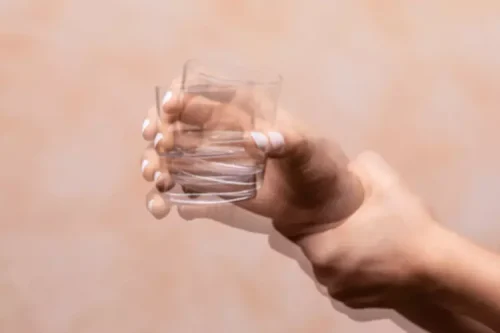
Alcohol metabolism takes place in the liver which produces enzymes to break down alcohol before the molecules are absorbed by the cells. This process takes time, and the liver can only break down a limited amount of alcohol in an hour – approximately one 12-ounce serving of beer or about 5 ounces of wine. When one consumes alcohol at a faster rate than this, accumulation of the substance takes place in the blood, leading to side effects such as sweating. Chronic alcohol misuse can lead to dependence, which means the brain and body require the presence of this substance to function without serious distress. Someone who is dependent on alcohol and suddenly quits drinking will experience alcohol withdrawal symptoms. Additional contributors that can cause you to experience night sweats include the use of certain prescription drugs, low blood sugar, and other alcohol withdrawal symptoms.
Seeking Help During Alcohol Withdrawal
- If this is the case, alcohol detox and addiction treatment will be very helpful.
- Having night sweats or making yourself perspire won’t expel alcohol from your system any faster.
- For many people, night sweats may have links to their alcohol consumption for a particular occasion.
- Alcohol withdrawal symptoms can kick in a few hours after your last drink or several days later.
- The marked vasodilation in people with this genetic trait increases the volume in the blood vessels and reduces blood pressure – making them prone to low blood pressure5 and dizziness.
- Their compassionate team is dedicated to providing the care and tools necessary for lasting recovery.
Individual factors, including metabolism rate and body composition, also play a significant role in how significantly one experiences these effects. Also, some people drink alcohol as a coping mechanism to deal with social anxiety. As with the food you eat, the stomach and small intestine digest the alcoholic drinks you consume; most of this process occurs in the latter. The liver produces enzymes that break down alcohol so your body can absorb it.
Is Sweating After Drinking Alcohol a Cause for Concern?
Alcoholism, on the other hand, is a chronic health condition characterized by an inability to control drinking, physical dependence, and withdrawal symptoms when drinking is stopped. If you notice these signs or have concerns about your drinking or any added health problems, speak to a doctor or mental health professional. They can help you determine if there is a problem and assist you in finding healthcare treatment programs. The body processes the alcohol in your system by breaking it down into compounds such as acetaldehyde and ethanol. (4) This process causes a rise in your body temperature, leading to sweating during the night. Another circumstance where alcohol consumption can lead to sweating is an alcohol-related skin reaction.
How alcohol triggers night sweats
- Additionally, I examine the way mental and physical health as well as our relationships with others impact the reasons people drink and their role in maintaining sobriety long-term.
- Typically this occurs when alcohol accumulates in the body, as the liver can only process around one drink per hour.
- Another serious cause of alcohol-induced sweat is alcohol intolerance.
- Reducing the amount of alcohol you consume can have a direct impact on the frequency and intensity of night sweats.
- Drinking water and eating food in between drinks can help your liver metabolize the alcohol more efficiently.
Typically this occurs when alcohol accumulates in the body, as the liver can only process around one drink per hour. Alcohol intolerance and alcohol withdrawal can also cause sweating. If you’re physically dependent on alcohol, sudden withdrawal can result in night sweats.
Alcoholic beverages may contain a lot of sugar and this causes a sudden increase in blood sugar levels. The body reacts by releasing insulin, a hormone that reduces blood sugar levels. A spike in insulin levels https://ecosoberhouse.com/ causes hypoglycemia or low blood sugar and this is usually accompanied by sweating. Excessive sweating, however, may contribute to dehydration in conjunction with symptoms like vomiting and diarrhea.

Antabuse (Disulfiram) Side Effects
This article covers the possible causes of alcohol-related night sweats, including how to manage night sweats after drinking. We also look at the first signs of liver damage from alcohol and when to contact a doctor. Drinking does alcohol make you sweat alcohol can cause some people to feel hot and may lead to night sweats. This occurs when alcohol affects the nervous system and how the body regulates and senses body temperature, blood pressure, and heart activity.

Along with those symptoms, nausea, shakiness, nightmares, difficulty sleeping, fatigue, headaches, loss of appetite and body aches may occur. Other possible symptoms related to alcohol withdrawal include restlessness, muscle pains and fever-like symptoms. Alcohol-induced night sweats are not uncommon in those who drink regularly or excessively. Shakiness, dizziness, heart palpitations, nausea, headaches, or fatigue may also result.
Alcohol Withdrawal and Night Sweats
I’ll explore all of them, but first, let’s start with why you sweat when you drink. If so, you’ve experienced the unpleasant phenomenon known as alcohol sweats. Take our short alcohol quiz to learn where you fall on the drinking spectrum and if you might benefit from quitting or cutting back on alcohol. The helpline at AddictionResource.net is available 24/7 to discuss the treatment needs of yourself or a loved one. This helpline is answered by Legacy Healing Center, an addiction treatment provider with treatment facilities in California, Florida, Ohio, and New Jersey. If you feel that any of our content is inaccurate, out-of-date, or otherwise questionable, please contact at

Can sweating cure a hangover?
An alcohol overdose can lead to serious medical conditions and potential death. Withdrawal symptoms can begin as soon as a few hours after your last drink or within several days. With personalized strategies and comprehensive support, Zinnia Health is committed to helping you achieve a life free from the constraints of alcohol. Take the first step towards a brighter, alcohol-free future with Zinnia Health today.

